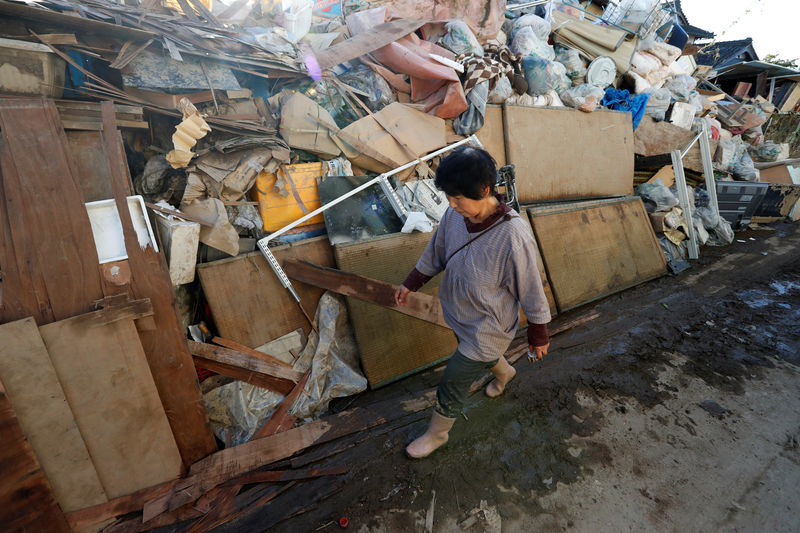This post was originally published on this site
https://i-invdn-com.akamaized.net/trkd-images/LYNXMPEFAI0XT_L.jpg
By Takahiko Wada
TOKYO (Reuters) – A string of powerful typhoons that struck Japan has left scars on the country’s non-life insurers, with industry giants likely forced to pay a combined $8 billion in insurance payments in the current fiscal year that ends in March.
Japan’s top three non-life insurers – MS&AD Insurance Group Holdings (T:), Sompo Holdings (T:) and Tokio Marine Holdings (T:) – said on Tuesday that insurance payments for damages from two recent strong typhoons will reach a combined 868.8 billion yen ($8 billion).
That followed a hefty 1.5 trillion yen in insurance payments in the previous year, when torrential rain in western Japan led to severe flooding and landslides that killed more than 200 people in the country’s deadliest weather disaster in 36 years.
Sompo Holdings downgraded its net profit estimate for the current fiscal year to 118 billion yen, down 19.5% from the previous year and a turnaround from an initial estimate of a 14.6% profit increase on last year.
The rising risk from natural disasters has become hard to ignore for Japanese companies. Some non-life insurers are considering raising insurance fees to make up for the cost.
“We’d like to consider raising fees” in response to a series of big natural disasters in the current year and a rising number of old houses suffering from water leaks, said Hirokazu Fujita, senior managing director of Tokio Marine.
Last month, Typhoon Hagibis caused 71 rivers to burst 140 levees over vast areas in eastern Japan, following massive floods and power outages from Typhoon Faxai in September.
The scars of the powerful storms, as well as occasional earthquakes, have shed light on the vulnerability of corporate Japan to the fallout from huge natural disasters.
Three quarters of Japanese companies have been hurt by natural disasters over the past two years, suffering damage to factories, office buildings, distribution networks and supply chains, a Reuters survey found.
Fusion Media or anyone involved with Fusion Media will not accept any liability for loss or damage as a result of reliance on the information including data, quotes, charts and buy/sell signals contained within this website. Please be fully informed regarding the risks and costs associated with trading the financial markets, it is one of the riskiest investment forms possible.

